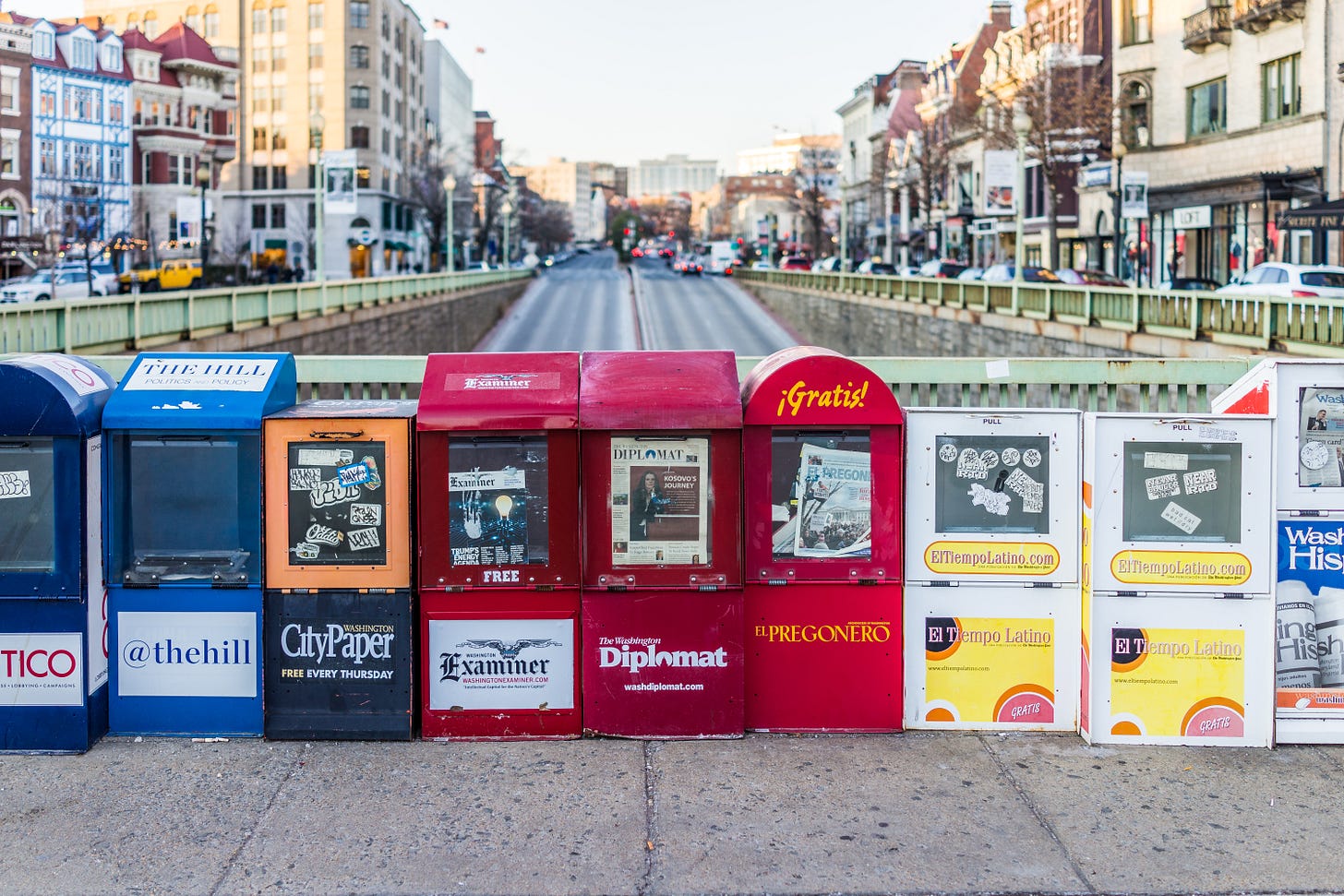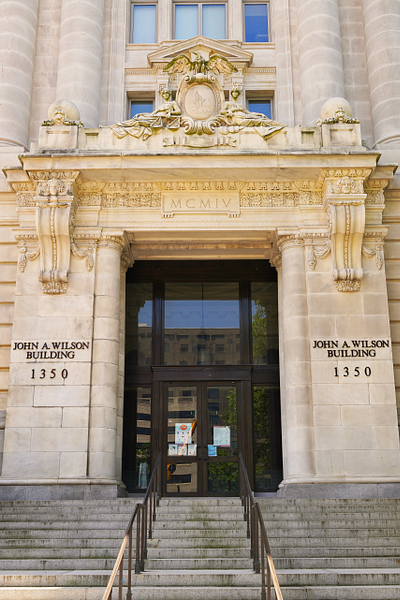First of its kind news coupon system to fund local news proposed in DC
A closer look at government measures to boost local journalism

The District of Columbia’s lawmakers are considering a proposal that would provide a grant for local news outlets through a “news coupon” system.
Should the bill pass, registered voters would receive five news coupons each year to distribute to news outlets of their choice, according to the 22-page bill before the Council of the District of Columbia.
The bill calls for 0.1% of the district’s budget, amounting to about $11.5 million based on the current $19.7-billion budget, for the program.
The introduction of the bill coincided with a record number of job cuts in the media industry, affecting newsrooms even in the nation’s capital, such as The Washington Post.
The idea of the news coupon system has been long advocated for by non-profit groups Democracy Policy Network and Rebuild Local News. It drew inspiration from Seattle’s Democracy Voucher Program, known to boost residents’ civic engagement.
The Seattle program provides voters with four $25 vouchers to donate to chosen political candidates in local elections and has been in use since 2017.

Anna Brugmann, director of policy at Rebuild Local News, expressed excitement about the bill, stating that it has been an “enormously complicated puzzle.” She viewed this bill as a blueprint for similar policies.
As the news industry historically relied on ad dollars, Brugmann explained many policies have addressed this aspect by providing tax credits — such as the Community News and Small Business Support Act in the current Congress and the Local Journalism Sustainability Act in the 116th Congress.
The voucher program aims to tackle the challenge of generating revenue from readers, a crucial component in creating sustainable models for local news, according to Brugmann.
The bill outlines that each news coupon represents a fraction of the total grant provided to all news outlets. They must receive at least 250 coupons to get a grant.
The value of a news coupon depends on how many are allocated, according to the bill. If 10% of residents use their coupons, each would be worth about $9.78. If 50% use them, each would be worth about $1.96.
When the government considers funding news outlets, questions often arise about journalistic integrity and maintaining independence.
For this proposed program, consumers will decide which outlets to fund, which helps mitigate potential political overreach, Brugmann said.
The bill also establishes a seven-member, independent “Community Journalism Board” to oversee the grant allocation process.
“It should not be up to the government to decide which outlets are funded,” said Councilmember Janeese Lewis George, who introduced the bill.
Each board member, however, would be appointed by a different government official including the mayor with council approval, as outlined in the bill.
In an interview with City Cast DC, Alex Koma, a reporter for The Washington City Paper, highlighted the divided early reactions among the district’s council members, making it uncertain whether this initiative will proceed.
The bill was co-sponsored by George and Councilmember Brianne Nadeau and it has been referred to the Committee on Business and Economic Development and the Committee of the Whole. Congress controls the district’s budget.
Koma said it’s challenging to predict the impact of the coupon system, given its novelty.
He questioned whether news outlets would be able to make decisions around hirings, coverage expansions and other investments without clear information on their funding.
“Maybe people vote for the competition and your grant funding diminishes,” he said. “I’m sure it will all be still helpful. Will it force a sea change in local journalism? Well, I supposed it would have to be a kind of wait-and-see approach, and frankly, I’m just not sure if we’ll even get a chance to find out.”
Brugmann said the success of this initiative largely depends on whether newsrooms and civic activists in the district embrace it.
The newsrooms “seem optimistic about it,” she said. “So I think there’s a broad coalition to be built around this policy here in the district.”
‘Public policy isn’t a silver bullet’
Although the Washington bill is the first of its kind, it's not the first policy aimed at financially supporting local journalism by governments across the country.
Some laws passed at the state level, while others stalled federally.
Experts said policymaking takes time, and it shouldn't be the sole solution to “subsidize” the news industry.
In Congress, the Community News and Small Business Support Act, which allows tax credits for advertising in local media and journalists' wages for certain small businesses and employers of journalists, has made limited progress, with only 27 co-sponsors.
The Local Journalism Sustainability Act, introduced in the 116th Congress, would have offered individual and business taxpayers an income tax credit of up to $250 for a local newspaper subscription.
Last year, California and New Mexico allocated $25 million and $125,000, respectively, to fund journalism fellowships and internships at the University of California Berkeley and the University of New Mexico.
In 2018, New Jersey enacted a law providing $5 million to create an independent “civic information consortium.” The program, run by colleges and universities in the state, offers various types of local coverage.
The Connecticut General Assembly this year approved a bill to support local news with advertising revenues. New York and Wisconsin considered a bill that would provide a payroll tax credit for compensation for journalists and establish local news advertising credit.
Brugmann attributed the slow progress of these bills to other pressing matters demanding lawmakers’ attention. She also said local journalism is a relatively new policy area.
“We’re still kind of establishing a policy foundation,” she said. “If we’re thinking in terms of the life cycle of policy, I don’t think it’s outside of the norm for, at the federal level, something not to have been passed yet.”
Given that and concerns about potential government influence over newsrooms, Brugmann said public policy “isn't a silver bullet,” but it should complement other solutions, including philanthropy, business model innovation, and other collaborative efforts.
“We have lots of problems in journalism,” Brugmann said. “Public policy is not going to solve all of our problems.”





